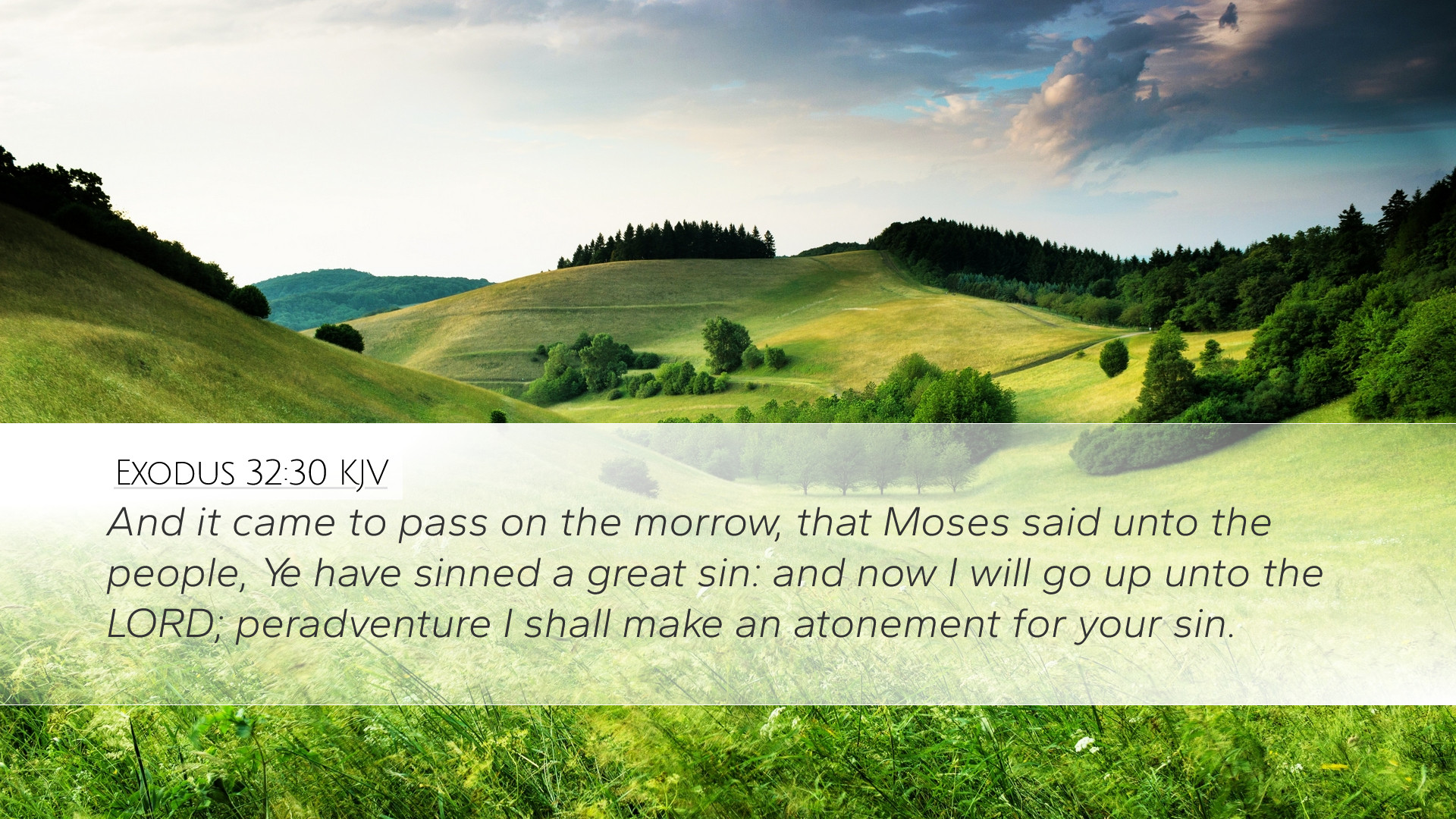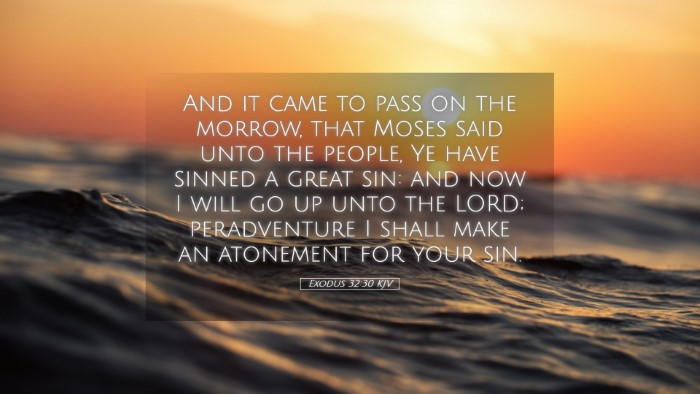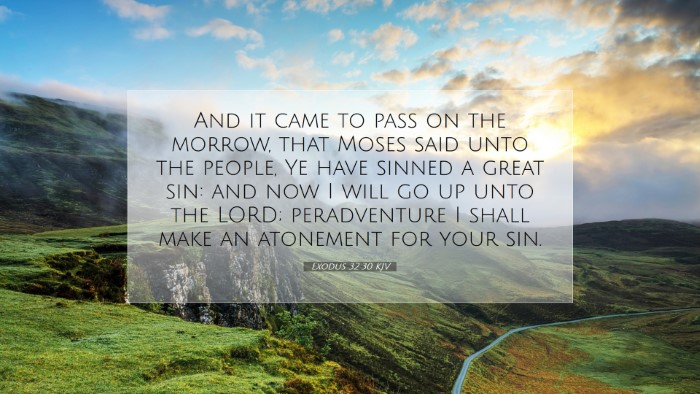Commentary on Exodus 32:30
Exodus 32:30: “On the next day Moses said to the people, 'You have sinned a great sin; and now I will go up to the LORD; perhaps I can make atonement for your sin.'
Introduction
Exodus 32 portrays a pivotal moment in Israel's journey, focusing on the dramatic events following the construction of the golden calf. This verse serves as a bridge between Israel's corporate sin and Moses' role as an intermediary. The reflections of esteemed commentators provide profound insights into the theological implications and the narrative's importance for believers today.
The Nature of Sin
Matthew Henry notes the gravity of Israel's sin, emphasizing that their act of idolatry was a blatant departure from their covenant relationship with God. The phrase "you have sinned a great sin" indicates both the seriousness and the collective nature of their transgression, highlighting that idolatry is a direct affront to God's holiness.
Barnes expands on this by explaining that sin, particularly in the form of idolatry, represents a failure to acknowledge God's sovereignty and to uphold His commandments. He emphasizes that the people’s longing for a tangible representation of God resulted in a severe breach of loyalty, which would have significant consequences for their community.
Moses as Intercessor
As the mediator between God and Israel, Moses' role is crucial in this narrative. Adam Clarke highlights that Moses, recognizing the magnitude of the sin, took it upon himself to seek atonement on behalf of the people. His intention to “go up to the LORD” reflects a selfless commitment to intercede, displaying the character of a true leader who bears the weight of his people’s iniquities.
This intercessory role of Moses can be viewed as a foreshadowing of Christ, who ultimately becomes the perfect mediator between God and humanity. Both Clarke and Henry assert that Moses’ actions were driven by a deep concern for the people’s future and their standing before God, showing how spiritual leaders are called to advocate for their communities.
Hope for Atonement
The phrase “perhaps I can make atonement for your sin” encapsulates the hope for reconciliation. This reflects a theological understanding of atonement, where Moses acts as a conduit for the possibility of forgiveness. Henry interprets this as a demonstration of God’s mercy, wherein even after significant wrongdoing, there remains an opportunity for forgiveness and restoration through sincere repentance.
Clarke elaborates on this by suggesting that the uncertainty in Moses’ statement (“perhaps”) underscores humanity’s reliance on Divine grace. It reflects an understanding that while Moses can intercede, the final decision lies with God. Such assurance of potential atonement can provide profound comfort, illustrating the nature of God's responsive love toward His people.
Lessons for Contemporary Believers
For pastors and theologians today, this passage serves as a powerful reminder of the consequences of communal sin and the necessity of intercession in the life of the church. It challenges leaders to be vigilant against the spiritual complacency that can lead a community away from God.
Additionally, both Barnes and Henry emphasize the importance of accountability among believers. The call to confront sin is critical, as it fosters both individual and communal repentance. Such practices ensure that believers remain steadfast in their faith and committed to God’s commandments.
- Intercessory Prayer: Encouraged as a vital part of church life.
- Communal Accountability: Highlighted as essential for spiritual health.
- Divine Mercy: Underscored as limitless for those who seek forgiveness.
- Spiritual Leadership: Challenged to embody selflessness and advocacy for their communities.
Conclusion
Exodus 32:30 stands as a profound entry point for discussions on sin, intercession, and the hope of atonement in the life of God’s people. The insights from Matthew Henry, Albert Barnes, and Adam Clarke underscore the timeless nature of this scripture, offering wisdom that resonates with pastors, students, theologians, and Bible scholars.
In the journey of faith, may we embrace the lessons of accountability and hope, recognizing our capacity for sin while also acknowledging our need for the grace that leads us back to a restored relationship with God.


